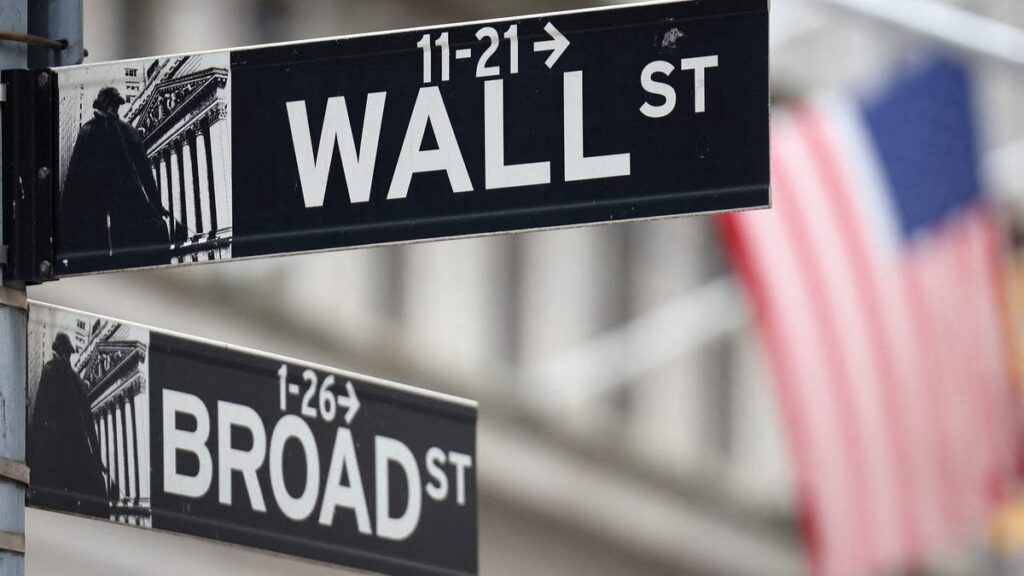
Dow, S&P 500, Nasdaq minimally changed after drop on Fed 2025 outlook
Summers’ calls dea of national Bitcoin reserve ‘crazy’
Former US Treasury Secretary Lawrence Summers says the US does not need a national Bitcoin reserve. “Some of what is being said this idea that we should have some kind of national Bitcoin reserve is crazy,” Summers said on Bloomberg Television’s Wall Street Week with David Westin.
Bloomberg – Politics
Wall Street closed Thursday in about the same shape, with the blue-chip Dow managing to eke out a small gain to snap a 10-day losing streak, the longest in 50 years.
The Dow ended up 0.4%, or 15.37 points, at 42,342. Both the broad S&P 500 and the tech-heavy Nasdaq showed minimal change at closing, down about 0.1%.
All of the indexes had opened higher, recovering some of Wednesday’s steep losses after the Federal Reserve pulled back its forecast for rate cuts next year. But they were unable to hold onto gains as the 10-year yield rose for a second straight day, to 4.569% based on expectations rates would stay higher for longer. Higher rates boost borrowing costs for companies, which can hurt profits and stock valuations.
The Fed lowered its benchmark, short-term fed funds rate late Wednesday by a quarter percentage point, as expected, but pared back its forecast for rate cuts next year. It only expects to cut its rate twice, by a quarter percentage point each time amid forecasts of higher inflation. That’s down from its September forecast for four rate cuts at a quarter-point each. Prospects for fewer rate cuts and higher inflation pummeled all three primary U.S. stock indexes, which posted their sharpest daily declines since August.
“Santa came early and dropped a 25 (quarter percentage point) rate cut in the market’s stocking but accompanied it with a note saying that there would be coal next year,” said Chris Zaccarelli, chief investment officer for Northlight Asset Management.
Economy still strong
The U.S. economy grew at a 3.1% seasonally adjusted annualized pace between July and September, better than the previous 2.8% estimate by the Commerce Department and above the 2.9% Dow Jones consensus estimate.
Consumer spending, which accounts for about two-thirds of all activity in the $29.4 trillion U.S. economy, rose 3.7% in the quarter, faster than the prior 3.5% estimate and the fastest since early 2023.
Existing home sales in November rose 6.1% from a year ago, marking the largest annual increase in more than three years.
Eugenio Aleman, Raymond James’ chief economist, said the report corroborated assertions earlier this week by the chairman of the Federal Reserve that “there are no signs, for now, of economic weakness.”
Around the markets
In other news, big movers included:
Bitcoin: The cryptocurrency dipped below $100,000 after Fed Chairman Jerome Powell said late Wednesday the central bank isn’t allowed to hold the unit.
Natural gas: Prices rose ahead of a cold spell expected for the East Coast as supply shrinks.
Nike: After the bell, the sportswear giant’s shares rose after better-than-expected results.
Micron (MU): The chip company forecast quarterly revenue and profit below estimates.
Accenture (ACN): The IT services provider beat Wall Street estimates for first-quarter revenue.
Lennar (LEN): The homebuilder reported weaker-than-expected earnings for the final quarter of its fiscal year
Vertex Pharmaceuticals (VRTX): Its experimental non-opioid drug showed minimal difference from a placebo in reducing pain, in a mid-stage study.
Darden Restaurants (DRI): The restaurant chain delivered strong quarterly results and outlook.
(This story was updated to add new information.)
Contributing: Reuters.
Medora Lee is a money, markets and personal finance reporter at USA TODAY. You can reach her at [email protected] and subscribe to our free Daily Money newsletter for personal finance tips and business news every Monday through Friday morning.




